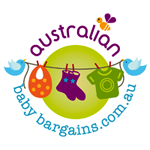Post Natal Depression – What it is and how to treat it
What is Post Natal Depression?

New mothers and fathers naturally expect the time around childbirth to be a very happy time. They see pictures of happy parents in the media, and before the birth there isn’t a lot of sharing about the potential challenges at this time. I have seen many new mums in my practice saying that they feel guilty for not bonding immediately with their child, or for not feeling happy, when they perceive they should. However, the time after the birth is a time when both women and men are more at risk of experiencing distress, and potentially developing a problem such as post-natal depression (PND) or anxiety.
You have probably heard of or experienced the “baby blues”, which women commonly experience a few days after the birth, often related to tiredness and hormonal change. The blues may trigger tearfulness and irritability, and they settle within a couple of weeks. However, significant anxiety and depression can also develop after birth. PND occurs in up to 10–20% of all women during the first year after childbirth, and about 10% of men also experience PND. PND describes the more severe or prolonged symptoms of depression that last more than a couple of weeks and interfere with the ability to do daily tasks, or to relate to the baby or others.
Why does it develop?
PND develops because of biological and psychological factors. It is important to rule out medical causes of symptoms similar to PND, such as anemia. Biological factors might also include a genetic vulnerability to depression, previous episodes of depression, and hormone fluctuations during and after pregnancy. Childbirth and becoming a parent involves change and stress. Sometimes there can be other stresses such as financial stress, relationship stress or even grief around the same time. There may be lack of support. Fatigue is an important factor, and being sleep-deprived makes us more vulnerable to depression, as do difficulties with breastfeeding or having an unwell baby.
What are the symptoms or signs of PND?
Watch out for symptoms occurring most of the time and nearly every day for at least two weeks: sadness, depressed mood, tearfulness or irritability; loss of interest in daily activities, or enjoyment in activities usually enjoyed; loss of confidence; feelings of guilt or worthlessness; fatigue, reduced energy (beyond what typically occurs when caring for a baby); broken sleep (irrespective of the baby); change in appetite, weight loss; inability to concentrate; a sense of hopelessness; thoughts of not wanting to be alive or suicide (seek help immediately). Also notice symptoms of anxiety, such as worrying excessively about the baby, your health or feeling panicky.
How can we get some help?
If you are concerned then see your GP or health professional. They can assess whether depression or anxiety are present and offer support and advice. There are a range of treatment options, depending on the severity of the depression or anxiety, and the person’s preferences. They include:
- Support and counselling.
- Lifestyle changes, such as getting more sleep, doing relaxing activities, eating well, getting out for walks.
- Cognitive-behavioural therapy or CBT (learning to be aware of thoughts and underlying beliefs that might trigger low mood, such as high expectations of yourself, wanting to be 100% perfect or in control – not possible with a baby).
- Inter-personal therapy (IPT) and couple therapy, focussing on resolving issues such as conflict which might be contributing. Attachment-based therapy can assist with relating to the baby.
- Practising mindfulness or being in the moment, which is relaxing and can help you enjoy your baby. There are now mindfulness-based therapies which can assist.
- Complementary therapies.
- Medication, such as antidepressants.
Dr Cate’s tips in relation to PND
1. Rest or sleep when you can (e.g. when your baby naps), eat well, go for walks.
2. Use relaxation techniques, meditation, mindfulness or self-hypnosis.
3. Remember that it takes time to bond with the baby, to breast-feed, to learn the role of being a mum or dad, and so lessen the expectations on yourself. Also let go of any tasks that you can, quit self-criticism, and let go of the need to be in control all of the time! Above all, be kind to yourself.
4. Seek out support from others (partners, family, friends, other mums or dads).
5. Seek out professional assistance if you are concerned. Therapy or medication may be helpful or needed.
Overall, remember that we need to be a good-enough parent and not a perfect parent. Seek out other mums or dads through community groups or websites such as this! Also have a good relationship with your GP and see a counsellor early on if you need support.
Visit www.drcatehowell.com.au for more information and feel free to contact us if you would like to.
The websites below may also be helpful.
www.beyondblue.org.au
www.blackdoginstitute.org.au
www.panda.org
www.betterhealth.vic.gov.au
Click here to read what Cate has to say about Anxiety and Panic.
 Dr Cate Howell OAM CSM is a medical practitioner, therapist, educator and author. She has clinics at Gilberton, Belair and Goolwa, focussing on counselling, mental health and wellbeing. Cate has written two books to date; “Keeping the blues away” about depression, and “Release Your Worries” on stress and anxiety. Further information about Cate and the practices, a blog and helpful information are available on her website www.drcatehowell.com.au
Dr Cate Howell OAM CSM is a medical practitioner, therapist, educator and author. She has clinics at Gilberton, Belair and Goolwa, focussing on counselling, mental health and wellbeing. Cate has written two books to date; “Keeping the blues away” about depression, and “Release Your Worries” on stress and anxiety. Further information about Cate and the practices, a blog and helpful information are available on her website www.drcatehowell.com.au


